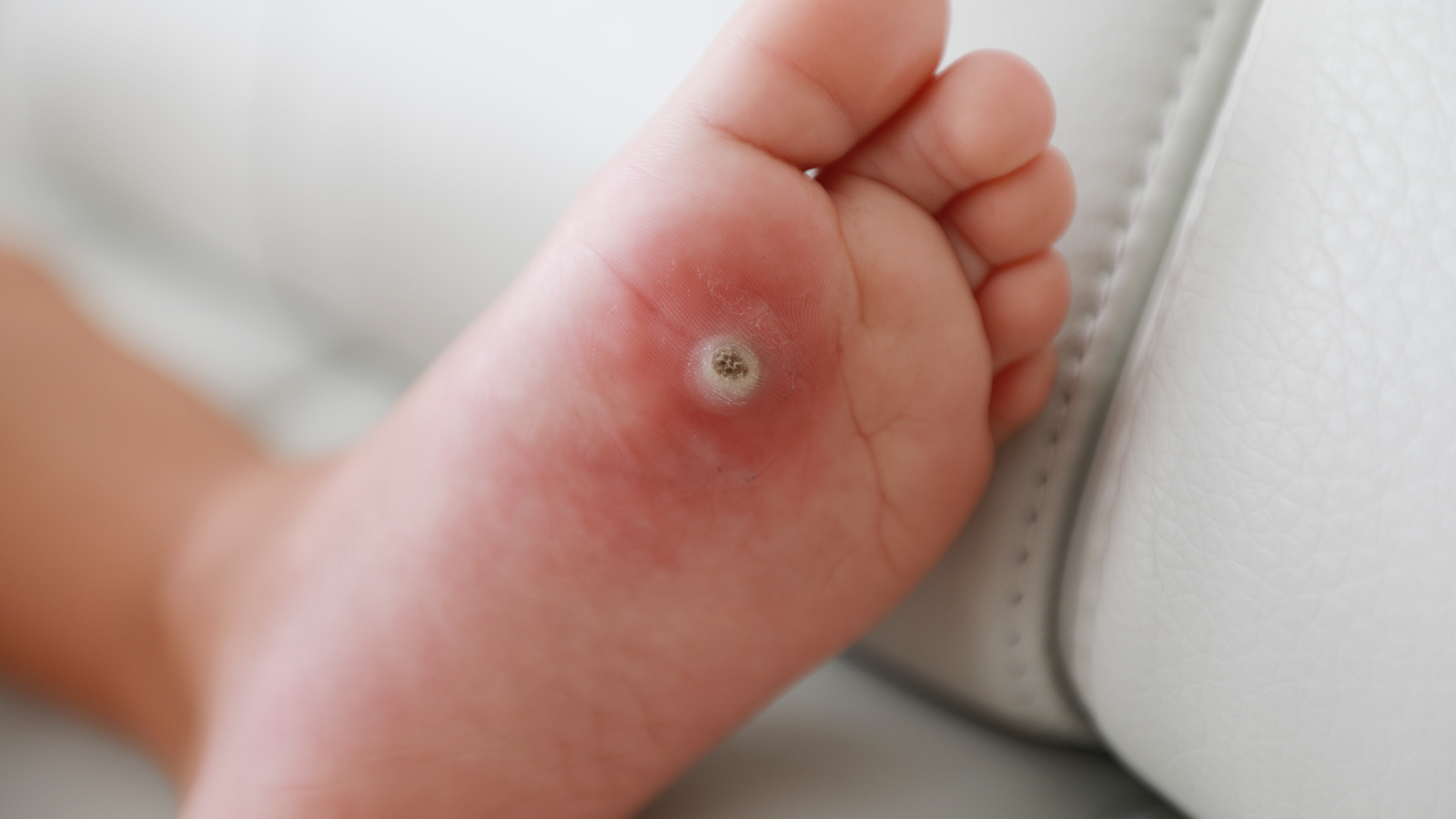Dr Suchitra Chinthapalli
Consultant Dermatologist
Specialist expertise: Adult Dermatology, General Dermatology, Dermatology, Moles, Acne, Eczema, Sun Damage, Skin Rashes, Facial Rashes, Pigmentation Disorders, Lesion Removal, Steroid Injections.
Warts are common skin infection that causes small bumps to develop on the skin, often on the hands, feet and knees.

Warts are a type of skin infection that causes small, rough, skin-coloured, non-cancerous (benign) bumps to grow on the skin. They most commonly occur on the fingers and hands but can also affect the face, feet, knees and genitals.
Warts are caused by a virus so are contagious and transmitted by touch. They are usually harmless and eventually disappear on their own, but can also be treated and removed.
Warts are caused by the human papillomavirus (HPV). Warts develop when HPV enters a cut or break in the skin, causing an infection. The infection triggers extra cell growth resulting in the development of a small bump on the surface of the skin.
Anyone can be affected by the virus and develop a wart, but children and young adults are most commonly affected. People with weakened immune systems, such as those with HIV/AIDS or those who've had an organ transplant are also at higher risk.
Warts are highly contagious and are often spread through:
Warts can develop singularly or in clusters. They can vary in size (between 1mm and 10mm) and appearance but they may be:
Warts are usually painless but some can cause discomfort and may occasionally itch or bleed.
A consultant dermatologist can make a diagnosis of warts simply by examining the bumps. In some cases, they may take a biopsy (a small sample of the growth) to test for HPV.
Most warts are harmless and will often clear up on their own within 2 years. However, you should seek treatment from a dermatologist if you can’t get rid of them, they hurt, or you have a lot of warts.
There are several treatments available, but no treatment is 100% effective so warts may return. Once you have the virus, warts can reappear in the same location or on a different part of the body, even after treatment.
Treatments for warts include:
Read more about the treatment options for warts.
Currently selected day
Available consultations